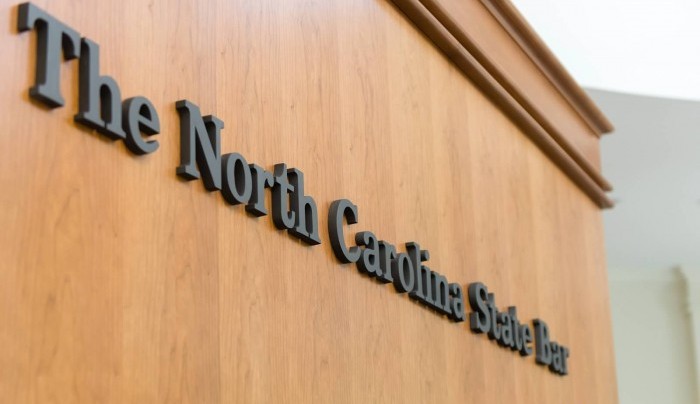Christopher V. Vaughan of Hoke County surrendered his law license on August 14, 2014 and was officially disbarred the next day. Vaughan had nine grievances filed against him with the North Carolina State Bar from May 2011 to October 2013. The grievances mainly arose when Vaughan failed to appear in court on behalf of clients who had paid him to represent them in traffic cases. Several clients had their driver’s licenses suspended or revoked without their knowledge due to Vaughan’s failure to appear and incurred additional legal fees to restore their driving privileges. Most clients complained that Vaughan did not adequately communicate with them.
Vaughan did not return clients’ payments when he failed to appear on their behalf and resisted attempts by clients to enter into fee dispute resolution. On multiple occasions Vaughan accepted money from clients and failed to deposit it into his trust account. In one instance Vaughan agreed to use part of a client’s fee payments to pay the client’s court costs and fines; when Vaughan failed to pay, the client’s license was suspended.
The State Bar mailed numerous Letters of Notice and follow-up letters to Vaughan regarding the grievances that had been filed against him. Several letters were also served on Vaughan personally, but he did not respond to any of his former clients’ claims. Ultimately, Vaughan was subpoenaed and appeared before the State Bar in September 2012. At that time he made multiple false statements, including claiming that he had refunded a former client’s fee when that individual was already deceased and that he had represented another former client in a hearing that had in fact never taken place.
Finally, Vaughan failed to complete his Continuing Education Requirements in 2012. The State Bar sent Vaughan an Order to Show Cause requesting proof that Vaughan had completed the necessary CLE hours or demonstrating why he should not have to do so. In August 2013, Vaughan’s license was suspended for failure to respond to the Order to Show Cause, to pay 2013 membership fees, and to make the IOLTA certification for the 2013 compliance year. Vaughan accepted representation in another speeding case after his license was suspended. Again he failed to appear in court, return the client’s fee, or respond to letters from the State Bar apprising him of the client’s grievance.
The Disciplinary Hearing Committee found that Vaughan violated the following Rules of Professional Conduct:
- Rule 1.3 – Diligence;
- Rule 1.4(a) – Communication;
- Rule 1.4(a)(3) – Attorney must keep a client reasonably informed about the status of the matter;
- Rule 1.5(f)(2) – Attorney must participate in fee dispute resolution when client submits a proper request;
- Rule 1.7(a)(1) – Attorney must not represent a client whose interests conflict with a current client;
- Rule 1.15-2(a) – Entrusted property must be maintained separately from the attorney’s property;
- Rule 1.15-2(b) – Trust funds received by the attorney must be deposited in a trust account;
- Rule 1.15-2(g) – Funds belonging to the attorney received in combination with funds belonging to the client must be deposited intact
- Rule 1.15-2(j) – Attorney shall not use or pledge any entrusted property to obtain credit or other personal benefit for the himself or any person other than the legal or beneficial owner of that property.
- Rule 1.15-2(m) – Attorney shall promptly pay or deliver to the client any entrusted property belonging to the client and to which the client is currently entitled.
- Rule 1.16(a) – A lawyer shall not represent a client if doing so would violate a Rule.
- Rule 5.5(a) – Attorney shall not practice law in a jurisdiction where doing so violates the regulation of the legal profession in that jurisdiction;
- Rule 8.1(a) – An attorney shall not make false statements of material fact in connection with a disciplinary proceeding;
- Rule 8.1(b) – An attorney shall not knowingly fail to respond to a lawful demand for information from a disciplinary authority;
- Rule 8.4(b) – It is professional misconduct for a lawyer to commit a criminal act that reflects adversely on the lawyer’s honesty, trustworthiness or fitness as a lawyer in other respects;
- Rule 8.4(c) – It is professional misconduct for a lawyer to engage in conduct involving dishonesty, fraud, deceit or misrepresentation;
- Rule 8.4(d) – It is professional misconduct for a lawyer to engage in conduct that is prejudicial to the administration of justice; and
- Rule 8.4(g) – It is professional misconduct for a lawyer to intentionally prejudice or damage his or her client during the course of the professional relationship, except as may be required by Rule 3.3.
View the full disciplinary order below.
Trouble viewing? Click here to download the order (PDF, 623KB).
